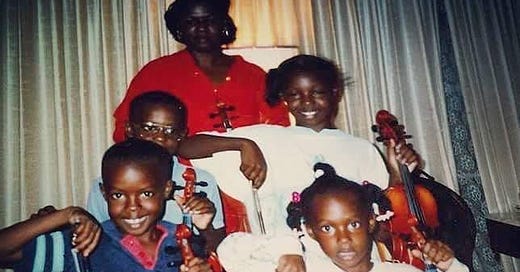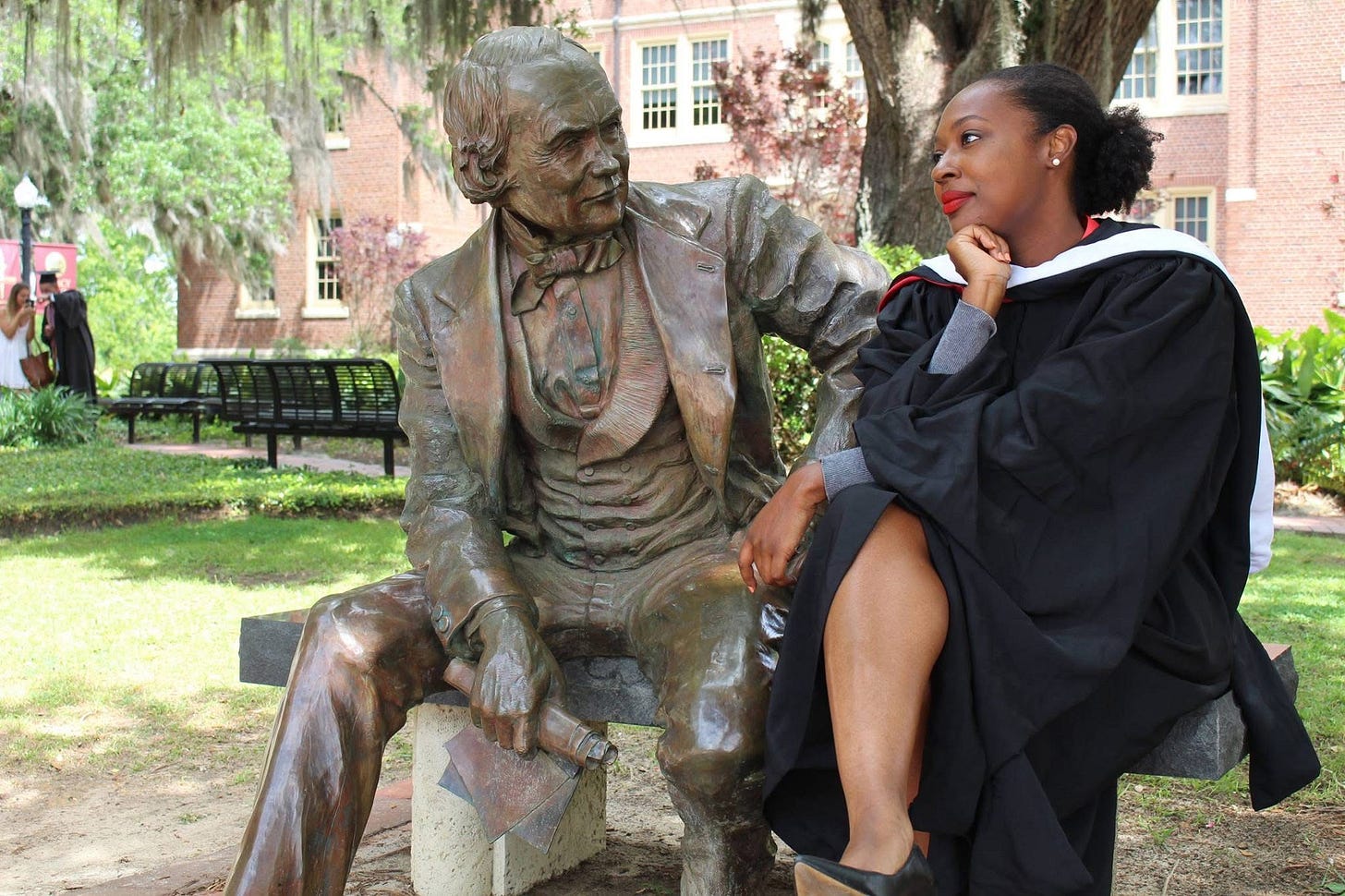I began learning to play the violin at the age of three.
You see, my mom is a violinist, and she knew that studying music would provide all her kids with opportunities. When people fondly remember their favorite music teacher as their first, I can’t relate. She was a taskmaster, a terrorist, and great at her craft. Through music, she was shaping our character and providing us with essential life tools.
By the time I graduated high school – I knew I wanted to pursue a career in classical music. At the time, I didn’t question it—I had talent, skill, and I had worked hard for years. I applied to top music schools based on the teachers I wanted to study under and got into all of them. In undergrad, I practiced, studied relentlessly, and eventually made my Carnegie Hall debut in 2012. I wasn’t a child genius—I just never stopped working.
I faced the typical barriers when choosing how to perform, so I started a quintet and made that my path. Like my mother and grandmothers, I became an entrepreneur. Learning to drive my career and create a path in the industry while learning to grow my income. It was hard, but I was doing what had always brought me joy: sharing my craft.
Then something shifted.
At 28, I took my first job that wasn’t performing or teaching music. To my surprise, I loved it. I enjoyed the spreadsheets, the graphic design, and the overall admin work. One year into the job, while still taking auditions and performing as a substitute with orchestras, I realized that I wanted a change. I’d spent my entire life preparing to be a musician. I’d lived that identity for decades. But slowly, I started to accept that maybe I was ready for a new chapter.
My undergrad credentials and experience allowed me to try working as an elementary school orchestra teacher for one year. As much as I loved teaching the kids and seeing them achieve so very much, I knew that I couldn’t work in that system for the rest of my life.
It wasn’t the kids; it’s never the kids.
I taught in a Title I school in rural Florida. The kids were sponges, learning music from scratch, and excelling—yet their potential was constantly underestimated by the teachers and administration. I couldn’t stay in that system. I applied to graduate school and was accepted, receiving a Fellowship that covered the full cost of tuition.
At the age of 30, after one year of teaching, I pursued my second master's degree. It turns out that people attend grad school at varying ages, so I wasn’t a fish out of water or even an anomaly. This was my first non-performance degree, so the experience was very different. No more four-hour practice days. Just long readings, critical writing, and service-learning projects that became the bridge to my next career.
Going back to college was the best thing I could’ve done for myself.
Giving up music never entered my mind. And then, when it did, I allowed myself to retire. Then, over the course of a year, I did the internal work to reimagine who I could be. I tried work I hadn’t considered before. I stopped referring to myself as a professional musician and put myself back into the mindset of a student. I honored what I had built. And then I made room for something new.
I entered graduate school with an open mind and chose to study arts administration. I didn’t know what jobs were available to me with that degree. Instead, I studied hard and took an internship between years one and two of my master's program. That internship helped me grow my network in the field I was entering. Between that internship, my fellowship as a recruiter, and volunteering with organizations every semester, I left graduate school with a wealth of knowledge and tools to establish a new career identity.
It took eight long months to secure my first job, but that job laid the foundation for a robust career that took me from an absolute beginner in the field to an executive in just seven years time.
Here’s what I learned: You are allowed to change. You are allowed to pivot, to dream new dreams, to bet on yourself—even if it means starting over.
I thought music performance was my lifelong calling. More than anything else, going back to College showed me that my identity isn’t wrapped up in what I do but instead is fueled by who I am at my core. A lifelong learner, a mover and a shaper, a person who will take risks and isn’t afraid to step into the unknown. Now, as I’m pushing 40, I realize that those characteristics have always been a part of my identity, and they’ve always served me well.
Why? Because my mother wasn’t just teaching me the violin.
In this world, women are taught to value themselves second and to give and give, but my mom showed me that the women in my family also take. For generations, they’ve built businesses; they’ve had the audacity and assuredness to live in ways that brought them fulfillment. So, at the young age of three, my mom began to teach what was truly my birthright: the courage to bet on me.
Now, at almost 40, I couldn’t be more grateful for that lesson.
If you’ve made it this far (THANK YOU): I'd love to hear how you’ve navigated identity shifts or embraced a new chapter in your life.
My name is Achia, and I live in Atlanta, GA. I’m turning 40 in 2026 and am sharing 40 lessons I’ve learned in my thirties, one story at a time. I hope you enjoy the journey and can’t wait to learn from you along the way.
Until next time,






That’s impressive and inspiring, Achia! I’m in the middle of a career pivot myself and just beginning my journey as a solopreneur and I regret not trying this earlier.
Looking forward to your other 39 lessons 🙂
My blog support your life change to reinvent yourself at any age with stories of people, like me who have done just that. I'm proud of you. I gave up a successful 80-hours consulting job in Silicon Valley when I was 51 to find balance in my life. That journey led me to Mexico where I have continued to reinvent my life for the past 30 years. Thank you for sharing your story.